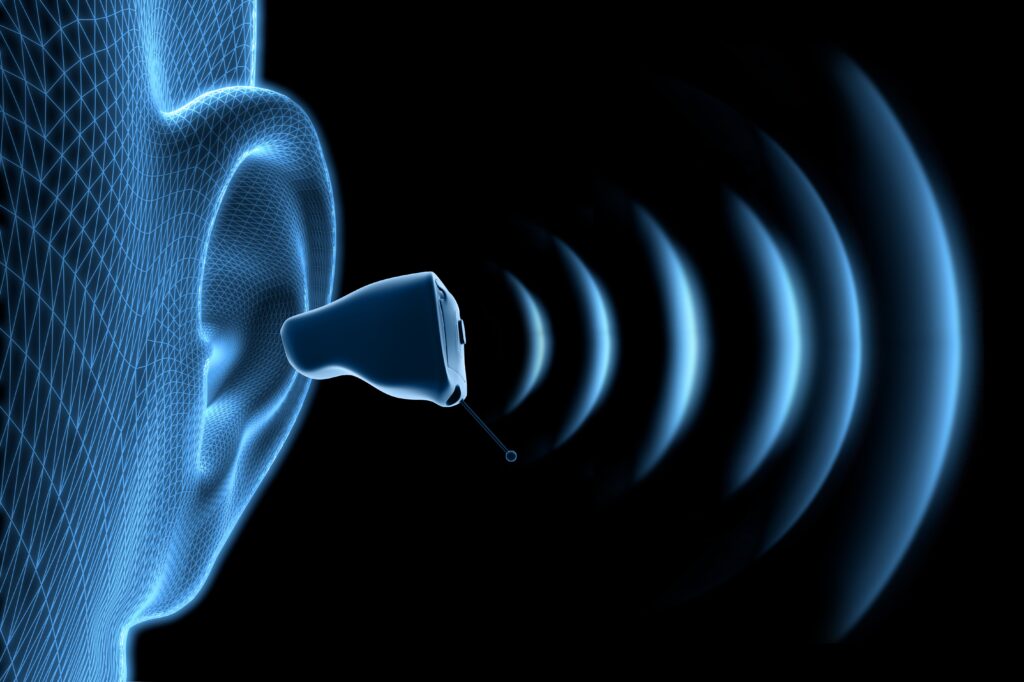The words severe and profound are quite scary sounding words when an Audiologist explains your hearing test result. Let’s look into what these terms really mean for you and how you can manage this level of hearing loss.
What is a Severe-Profound Hearing Loss?
When describing hearing loss, hearing care professionals will ideally stay away from giving overall percentages and look at the hearing thresholds on an audiogram between the frequencies 500hz and 4Khz. When thresholds are beyond 70dB(HL) on the audiogram, this is a severe hearing loss and when they’re beyond 9-dB(HL), this is a profound hearing loss. The audiogram is the chart used to plot the results of pure tone audiometry.
Effects of a Severe-Profound Hearing Loss
The effects of a severe-profound hearing loss will vary for each individual. This is because it will depend upon how well a person can process the sounds that they can hear, their ability to lip read and how long they have had the severe-profound hearing loss for. It is generally accepted that a bilateral (both sides) profound hearing loss will affect all aspects of daily communication, especially when hearing aids are not worn. Listed here are just some of these difficulties.
- Hearing soft voices or when the speaker is turned away
Soft voices will be very difficult for those with a severe-profound loss. If a profound hearing loss is bilateral (on both sides), soft sounds may not be heard at all and if the speaker faced away, a person with a profound hearing loss may not be aware that someone is speaking at all. If the speaker is turned away, there is no access to the visual clues of the lips that everyone can “read” to some degree. These visual clues are important communication tools for people with a severe-profound hearing loss. - Missing alert and alarm sounds
People with a severe-profound hearing loss may not hear sounds like a doorbell, oven timer or phone ringing at all, especially if they are further away from the source or are not wearing hearing aids. The alarm sounds like a smoke or carbon monoxide detector may also not always be heard by a person with a severe-profound hearing loss if they are away from the sound source. Alarms with flashing lights are often the better choice for this severity of hearing loss. - Conversation over the telephone
Once a hearing loss reaches severe-profound levels, conversation over the telephone can become most difficult without the aid of a secondary assistive device or direct streaming to the wearers hearing aids. This is due to the overall loss of sound and the lack of visual clues available. - Hearing over a distance
The further a voice has to travel, the quieter it will be when heard by the intended recipient. If the recipient has a severe-profound hearing loss, they are already missing out on a significant amount of sound and will not hear a person from the next room or across a large hall. - Group conversation
In a group conversation, it cannot be easily predicted who will speak at what moment making it difficult for people with severe-profound hearing loss to keep up with any visual clues. Knowing the context of the conversation is helpful, as there will be a smaller pool of things that could have been said and making it easier for someone with a severe hearing loss to guess. - Background noise
When there is competing environmental noise, like in a restaurant or cafe, the brain has to work harder to discriminate the wanted signal (speech) amongst the noise of the room. As low-frequency sound travels better than high-frequency sound, there is often a low “hum” of babble which those with severe-profound hearing loss will hear, whilst being unable to hear the clarity sounds of the person they want to hear. If the hearing loss is asymmetrical, i.e. one ear is better than the other, hearing in background noise can be problematic as the sufferer will find it difficult to localise sound. - Television
To compensate for the loss of sound, people with severe-profound hearing loss will often increase the volume of the television or radio. This can cause conflict in the home environment if those with a severe hearing loss cannot hear the television at an acceptable volume. The use of a TV listener or streaming of sound directly to hearing aids worn by a person with severe-profound hearing loss can provide a better listening experience. - Unfamiliar accents
When a person with a severe-profound hearing loss has a conversation with an accent that they are not used to, the brain has two extra jobs to do – filling in the gaps that they do not hear and translating the speaker’s version of words into their own. The brain can only do so much at once, therefore it makes sense that those with severe-profound hearing loss will find accents more challenging than a conversation with a familiar voice.
Signs of a Severe-Profound Hearing Loss
- Having the television significantly louder than others would have it and still complaining that it is not clear
- Frequently missing alert sounds e.g. doorbell, oven timer, telephone ringing
- Being unable to hear alarm sounds – this is a concern for their personal safety
- Asking for repetition very often
- Mishearing elements of conversation and responding inappropriately
- Becoming quiet in social environments
- Becoming dominant in social environments – this may seem contradictory but it is not unusual for those with a profound hearing loss to appear chatty and confident as a coping mechanism. The more they talk, the less others are speaking and therefore less time is spent struggling to follow the conversation
- Struggling on the telephone, even with the loudspeaker enabled
Management and Treatment
Contact a ENT consultant
If a severe-profound conductive or mixed hearing loss is newly diagnosed, a discussion with the GP or hearing care professional about a referral to see an ENT (Ear, Nose & Throat) consultant would be helpful. Depending on the cause of the conductive loss, there may be surgical intervention or bone conduction aids that can improve the hearing. If the loss is sensorineural, a consultation with an ENT professional is still recommended as the hearing loss may meet the candidacy for a cochlear implant.
Hearing Aids
If any surgical/medical options have been ruled out, then hearing devices can help manage a severe-profound hearing loss. Hearing aids and assistive listening devices are programmed according to a person’s individual hearing thresholds, therefore giving them access to the speech sounds that they struggle to hear unaided. However, the worse the hearing thresholds are, the greater the amplification requirements of sound and the more distorted it can become.
It is very important that realistic expectations of what hearing aids can and cannot do are set for those with a severe-profound hearing loss. For those living in the UK, hearing aids can be accessed via the NHS if the individual meets the local provision criteria. Anyone can access hearing aids of a wider range of styles and technology levels privately. Of course, if you live in Leicestershire, Warwickshire or Northamptonshire, we will always recommend you come to visit us at one of our Hear4U branches to see how we can help you. Private hearing care has become more accessible since the introduction of interest-free finance plans, which we are proud to offer so that we can help more people.
First-time wearers of hearing aids, whose hearing has already deteriorated to severe-profound levels, can expect a longer acclimatisation period compared with those of a mild hearing loss. This is because of the amount of sound that is “given” back, for the brain to adjust to. This is why it is always recommended that hearing help is sought as soon as symptoms of hearing loss is noticed – the earlier you start on your journey to better hearing, the easier it is likely to be for you to adjust to hearing aids.
Assistive listening devices
Assistive listening devices that can connect wirelessly to hearing aids can be hugely beneficial in the management of a severe-profound hearing loss. Those who have greater difficulty processing sound in noisy environments are most likely to benefit from the use of a gadget called a remote microphone. Audiologists at Hear4U have access to speech-in-noise testing so are able to explain the individual ability to process sound in challenging environments and therefore whether a remote microphone will suit somebody’s needs.
TV streamers are a fantastic way to get the best quality of sound when watching favourite television programmes and mean that the hearing aid user and their family can watch at their own preferred volume. Most new technology private hearing aids will be able to connect wirelessly to mobile phones, but for slightly older models, a phone clip or adapter will enable the wearer to stream sound from their mobile (and more!). If you already have a pair of hearing aids and want to purchase an assistive listening device, head over to our sister site BY CLICKING HERE to find out more.
Occasionally, for those stubborn ones among us who may have left things until their family are at their wit’s end, extended auditory deprivation can mean that adjusting to hearing aids is not possible. For these cases, TV listeners can be a huge help for the household dynamic if the TV lover with a severe-profound hearing loss refuses hearing aids. By wearing TV listening headphones, they can listen at their own volume preference without disturbing other members of the household or their neighbours. TV listening devices can also be found on our sister site









